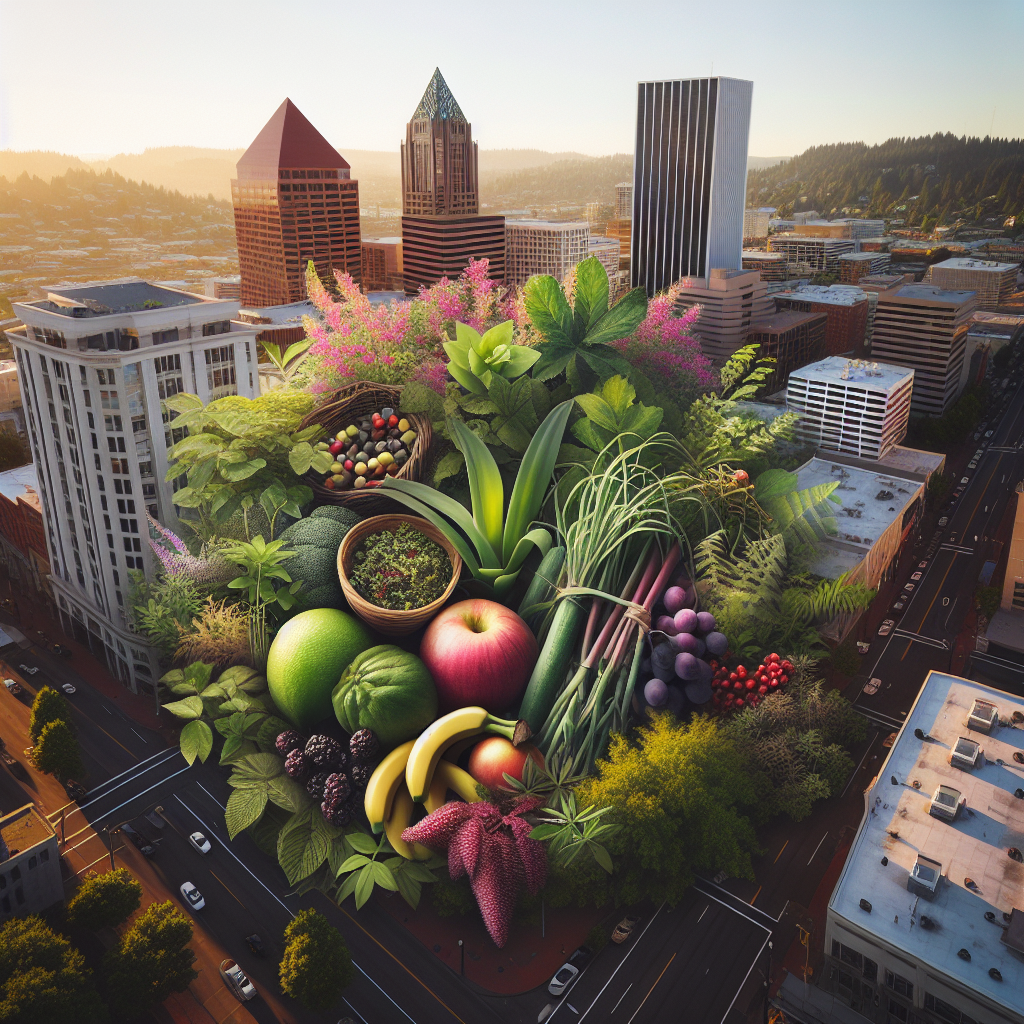Title: Urban Foraging in Portland: A Local’s Guide to Edible Plants in the City
Introduction
Welcome to the magical world of urban foraging in the heartland of Oregon, our beautiful city of Portland. This guide peeks into the boulevards, parks, and the lesser-known corners of the city where surprisingly edible plants grow aplenty. It’s time to embrace that innate forager within!
“Hunting” For Edible Green Delights
Portland’s lush cityscape is teeming with a variety of edible plants. On a sunny afternoon, find your way to Forest Park, a local’s favorite spot and one of the largest city parks in the country. Amidst its thousand-plus acres of woodland, you’ll come across edible treasures like the blackcap raspberry, Oregon grape, and the Stinging Nettle. Oregon grape is quite a sight in spring with its bright yellow flowers, but wait till late summer when they turn into clusters of dark bluish-black berries, perfect to add a tangy dash to your pies and jams.

Stay Safe, Forage Smart
Urban foraging is not just about identifying edible plants; it’s also about ensuring what you’re gathering is safe to consume. Remember, plants growing near busy roads absorb exhaust fumes, so stay clear of these areas. Instead, head over to Whiteaker Community Gardens — these shared spaces are home to edible yarrow, camas bulbs, and the thimbleberry. Always be sure to follow city regulations and only take what you’ll use. As we Oregon locals like to say, leave no trace!
Tips for the Urban Forager
Urban foraging in Portland calls for a bit of savvy, particularly when it comes to timing. In the early spring, Reed Canyon, a beautiful city spot located in Southeast Portland, reveals a bounty of miner’s lettuce — a native plant with a lovely peppery taste. As we inch closer to the end of spring, the trails of Tryon Creek State Park offer a profusion of Salmonberries, a real local favorite. Come fall, Mushroom enthusiasts should venture to Powell Butte Nature Park for fungi like the prized chanterelle.
Portland’s Rich Foraging Classes
For those keen on deepening their foraging knowledge, Portland offers several trusted educational resources. The Portland Audubon Society, renowned for its bird watching activities, also hosts wild edible plant walks. There’s also Wild Food Adventures, where experienced ethnobotanist John Kallas provides extensive workshops. These classes are a great chance to immerse yourself in Oregon’s rich natural heritage while gaining practical foraging know-how.
Community Driven Foraging
Visitation to community lands such as Zenger Farm and 46th Avenue Community Garden not only provides bounty but also gives a chance to meet fellow foragers. These spaces encourage responsible foraging by maintaining common planting and harvesting guidelines, ensuring that there’s plenty for everyone.
A Local’s Farewell Tip
Foraging is more than just finding a free snack. It’s an invitation to connect with our beautiful state, understand the cycles of growth in Oregon, and try out food that’s literally grown in our backyard. Whether you’re looking for berries along the Waterfront Park or feeling adventurous hunting for mushrooms in Mount Tabor Park, don’t forget to have fun while practicing sustainable foraging. Remember, Portland’s urban foraging is as much about the camaraderie and connection as it is about the hunt and the harvest. Happy foraging, friend!
